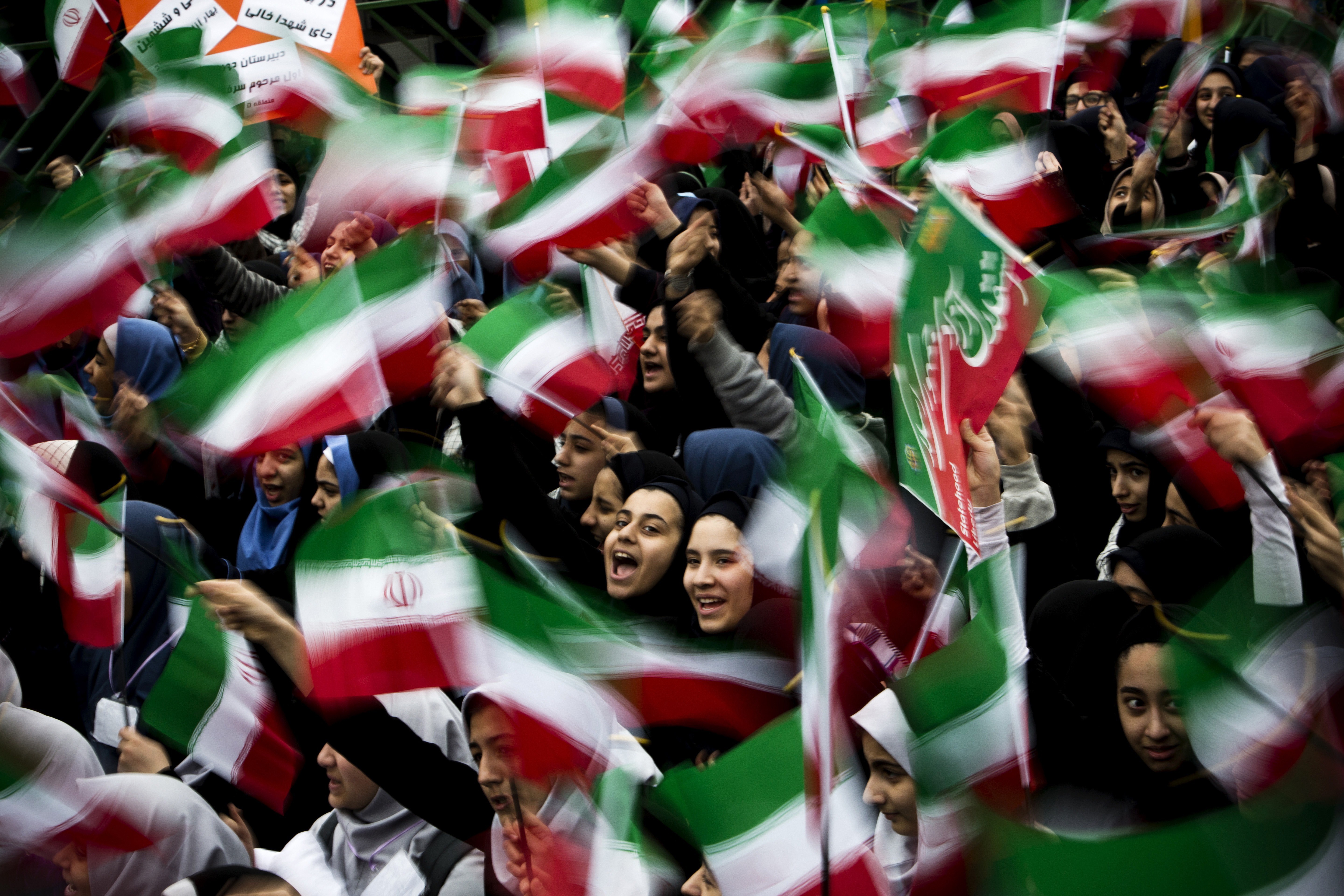Why the Iran deal is a powerful new narrative for the Middle East
It shows Western and Islamic states can coexist peacefully


A free daily email with the biggest news stories of the day – and the best features from TheWeek.com
You are now subscribed
Your newsletter sign-up was successful
The details of the Iran deal have been available for a couple days, and as surely as the movement of the tides, the think pieces are rolling in. Most so far have focused narrowly on the quality of the deal: Will the Iranians live up to their side? Will the U.S. benefit overall?
I'd like to focus on a different angle: the wholesome benefits of the deal for Iran, and the potential it could have for the broader Middle East. This deal, should it be implemented, provides a road for Iran — and potentially much of the rest of the Middle East — out of its troubles.
First, what's in the deal? The New York Times has a good summary of the main points, but here are the basics: The arms embargo will remain for up to eight years (potentially less if Iran behaves well), and Iran will get rid of most of its enriched uranium and centrifuges, but will retain a small number of advanced versions of the latter. Nuclear inspectors will be allowed throughout the country, but Iran will have 24 days to comply with unusual requests. The economic sanctions will be gradually lifted as Iran demonstrates its compliance — with a provision that they can snap back into place should Iran cheat.
The Week
Escape your echo chamber. Get the facts behind the news, plus analysis from multiple perspectives.

Sign up for The Week's Free Newsletters
From our morning news briefing to a weekly Good News Newsletter, get the best of The Week delivered directly to your inbox.
From our morning news briefing to a weekly Good News Newsletter, get the best of The Week delivered directly to your inbox.
As Josh Marshall points out, one's view of this deal will inevitably hinge on the balance of trust. Nuclear weapon technology and diplomacy are both extremely complicated, and all but a few experts will inevitably rely on the testimony of others. Hence, those congenitally suspicious of Iran will conclude the deal is rotten, while those more willing to trust the president, or cut the Iranians a bit of slack, will conclude the opposite.
Count me among the latter. Given the international context, it looks like a reasonably solid win-win. Europe, Russia, and China all have closer trade ties with Iran than the U.S. does, so it is likely they would have simply bailed on sanctions had President Obama followed the advice of chest-thumping American hardliners, who appear to think diplomacy is about shouting maximalist positions as loud as possible. Best of all, the deal will make it harder for a future American president to start another war of aggression.
Aside from the narrow question of sanctions and nukes today, the really hopeful prospect of this deal is how it may provide a way to defuse the poisonous legacy of Western colonialism and meddling.
Like practically all the Middle East, the West tossed Iran around like a toy, for decades on end. The British and Russians jostled for domination over it for nearly a century; the Allies invaded during WWII to keep the Soviet supply lines open, and to keep Hitler from getting its oil. Worst of all, in 1953 a CIA-organized coup overthrew an incipient democratic state (to preserve access to underpriced oil, naturally), transforming the Shah from a timid constitutional monarch to a ferocious, mass-torturing dictator.
A free daily email with the biggest news stories of the day – and the best features from TheWeek.com
The 1979 Iranian revolution was a response to unjust foreign domination, above all. As an overtly religious revolution, it provided a very influential example of an Islamic people throwing off the yoke of Western oppressors.
Historically, this has often not ended well. An underrated aspect of the evil of colonialism (among many others) is how it damages the self-respect of subject peoples, and inspires furious resentment that can poison future self-government and diplomacy.
This deal provides a glimmering of a brighter future. Iran will benefit economically, of course, but full membership in the international community comes with certain norms whose power is no less strong for being implicit and subtle. Certain things — stealing an election for a Holocaust denier, say — simply aren't done. Meanwhile, Americans will have to abandon the idea that Iran is a rabidly insane martyr state.
A U.S.-brokered agreement that leads to a strong, confident, and prosperous Iran would be a beacon of hope for the Middle East and the world as a whole. It could join Turkey (supposing that country can sort out its electoral difficulties) as a respectable middle-income nation that, while not exactly American BFFs, could maintain a solid working working relationship with the U.S.
Best of all, it would demonstrate that Western nations and Islamic ones can coexist on terms of mutual respect. The argument from Islamist terror organizations that America is hell-bent on waging war on Islam itself would be powerfully undermined — and reformers across the region would have their position strengthened. Let's hope it works out.
Ryan Cooper is a national correspondent at TheWeek.com. His work has appeared in the Washington Monthly, The New Republic, and the Washington Post.
-
 Why are election experts taking Trump’s midterm threats seriously?
Why are election experts taking Trump’s midterm threats seriously?IN THE SPOTLIGHT As the president muses about polling place deployments and a centralized electoral system aimed at one-party control, lawmakers are taking this administration at its word
-
 ‘Restaurateurs have become millionaires’
‘Restaurateurs have become millionaires’Instant Opinion Opinion, comment and editorials of the day
-
 Earth is rapidly approaching a ‘hothouse’ trajectory of warming
Earth is rapidly approaching a ‘hothouse’ trajectory of warmingThe explainer It may become impossible to fix
